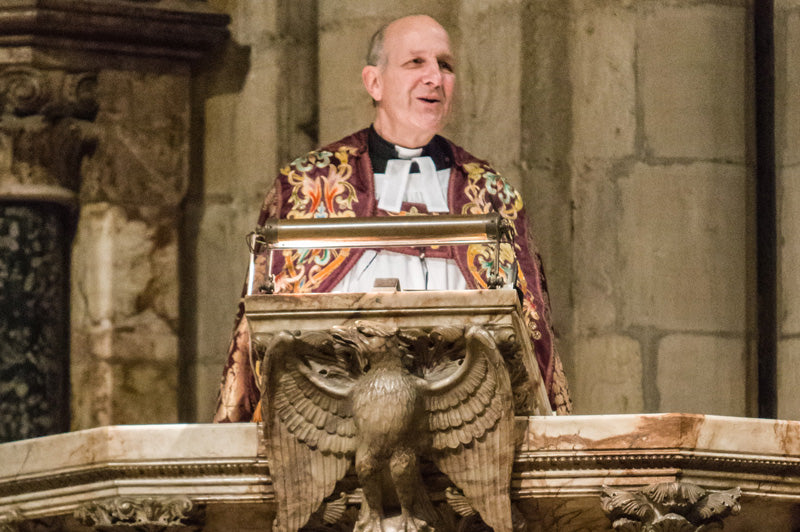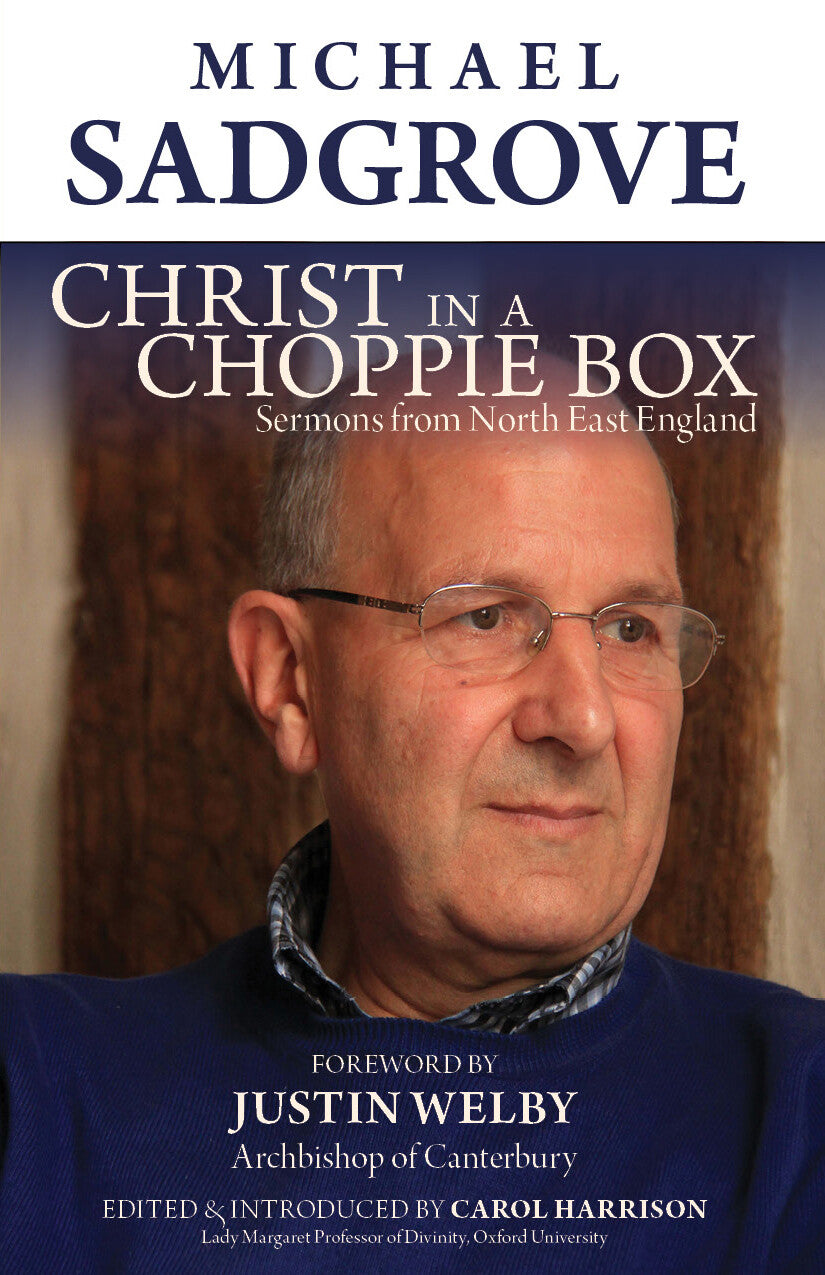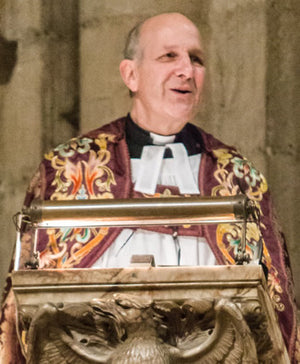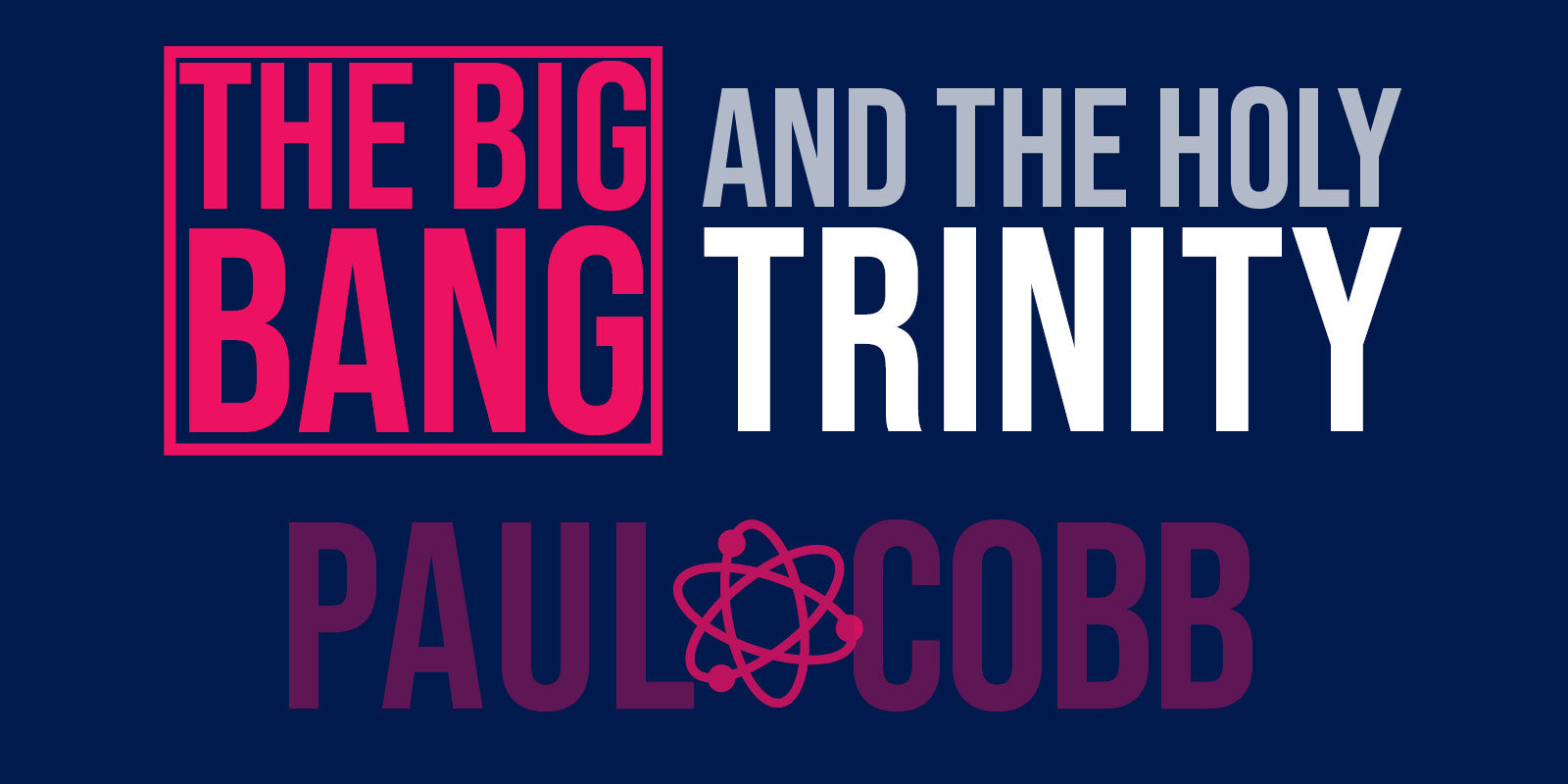
I’ve always loved preaching. I’ve found it among the most rewarding aspects of public ministry. I don’t simply mean delivering a sermon to a (usually) appreciative audience in a church or cathedral. There’s the satisfaction of preparing it, immersing myself in the biblical texts set for the day, reflecting on my own experience of faith and human life, drawing on poetry or music, film, literature or art to stimulate the imagination.
So I was delighted that some of my sermons from my time at Durham Cathedral were published by Sacristy Press when I retired in 2015. And I’m pleased that four years later, as I write, Christ in a Choppie Box is being featured as Sacristy Press’s Book of the Month. (If you find the title baffling and wonder what it means, read the preface!) Being asked to write this month’s blog gave me the chance to pull the book off the shelf and glance through it once more.
I turned to an Easter sermon that the editor chose to include (my friend Carol Harrison, once of Durham University, now the Lady Margaret Professor of Divinity at Oxford). It’s called ‘White Easter’ because that year it fell in March and it was proving to be a bruisingly cold spring with unseasonable frosts and snows lingering well after the equinox. I am surprised how keenly I felt the rigours of winter. I was clearly getting old.
In the sermon I link our yearning for warmth and light with our hunger for springtime and resurrection in life. “Easter answers our longings and desires,” I say. “It does this by both changing how things were, and transforming our view of them. We would not be here if we didn’t believe that something infinitely life-changing took place on Easter morning when the women went to the tomb and found the stone rolled away and the grave space empty… Here is where fantasy meets reality, where longing is transmuted into hope.”
Re-reading that sermon made me think about preaching at the great festivals. I’ve now been ordained 44 years. That must mean around forty Easter sermons—many more if you include those preached during the fifty-day Easter season. Not all of them have survived (mercifully), though the earliest sermon which I have a clear memory of preaching was, as it happens, an Easter one. That was when I’d been ordained just a few months. It was on the beautiful story of the Emmaus Road in St Luke’s Easter story (Luke 24: 13-35). The text is long lost, but not the memory of how, like the disciples, my heart seemed to burn as I tried to speak about the risen Christ. When that happens to the preacher, it’s an experience to cherish.
“Easter answers our longings and desires,” I say. “It does this by both changing how things were, and transforming our view of them. We would not be here if we didn’t believe that something infinitely life-changing took place on Easter morning when the women went to the tomb and found the stone rolled away and the grave space empty… Here is where fantasy meets reality, where longing is transmuted into hope.”
All those sermons! How does the preacher stay fresh over a lifetime of preaching? How do we not collapse into cliché time and again, or simply recycle old material from years ago? This year I’m preaching Holy Week and Easter at Southwark Cathedral. How do I say something new at first light on Easter Day? – for yes, on the south bank of the Thames, the guest preacher has to be up at the crack of dawn to preach at the Great Vigil and Liturgy of Easter.
I wish I knew the answer. Maybe it’s one of the miracles of ministry. I’m not in any way comparing myself to Johann Sebastian Bach, but when you think how as cantor of the two churches at Leipzig he had to write a new cantata every week, orchestrate it, copy out the parts and rehearse his musicians all in the space of a few days, you’re amazed that it could be done at all, let alone with such brilliance and consistency. (That was a normal workload for church musicians in those days from the greatest like Bach to the least. Meanwhile Lutheran pastors would be expected to deliver sermons lasting a full hour… you have to admire the stamina not only of preachers and musicians but also of church congregations!)
I guess there are many aspects to staying fresh as a preacher, or trying to. One is the conviction, as the Puritan Samuel Rutherford put it, that “there is always more light and truth to break forth from God’s holy word”. A lifetime of preaching is too short to fathom the mystery of God and his ways, let alone speak of it in the pulpit. But that calls for curiosity on my part as a preacher: about the text, about life, about human beings, about God. I need to continue to be animated by this lifelong journey of discovery as faith seeks understanding. “Old people should be explorers” said Haydn when he was composing his last great works. Even in retirement. (Especially in retirement?)
Michael’s sermons are both beautiful and inspiring. They draw the reader face to face with God in surprising ways, always feeding the spiritual appetite—yet leaving me thirsty for more of what we have just tasted. They are beautifully crafted, and admirably concise. The use of English is impeccable and the scholarship profound. The eclectic references to art and literature demonstrate an aesthetic talent and theological versatility that is exceptional.”
from the Foreword by Justin Welby, Archbishop of Canterbury
Liturgy, prayer and spirituality are of course the bedrock of authentic ministry. You can’t speak about what you haven’t at least begun to glimpse, or wanted to. To be inspired by the church’s liturgy and to feel its rhythms is, I think, vital for good liturgical preaching. But so is personal prayer, especially the capacity to be still and pay attention to (“notice”, my wife says) the ebbs and flows of life where so often God comes to us. You can call it being a reflective practitioner for it’s certainly true that “the unreflected life is not worth living”. Why else would people listen to sermons if not to glean wisdom and insight from the word of God as mediated through the preacher’s own lived experience?
The golden rule of every sermon is, before you ever get into the pulpit, first preach your sermon to yourself. The same is true of blogging. I’ll try to remember that when I get into the pulpit on Easter morning.
Happy Easter to you all!
Christ in a Choppie Box, an edited collection of some of Michael Sadgrove's finest and most thought-provoking sermons from his time in Durham, is our April #BookOfTheMonth. Get your copy of this “beautiful and inspiring” collection today.











